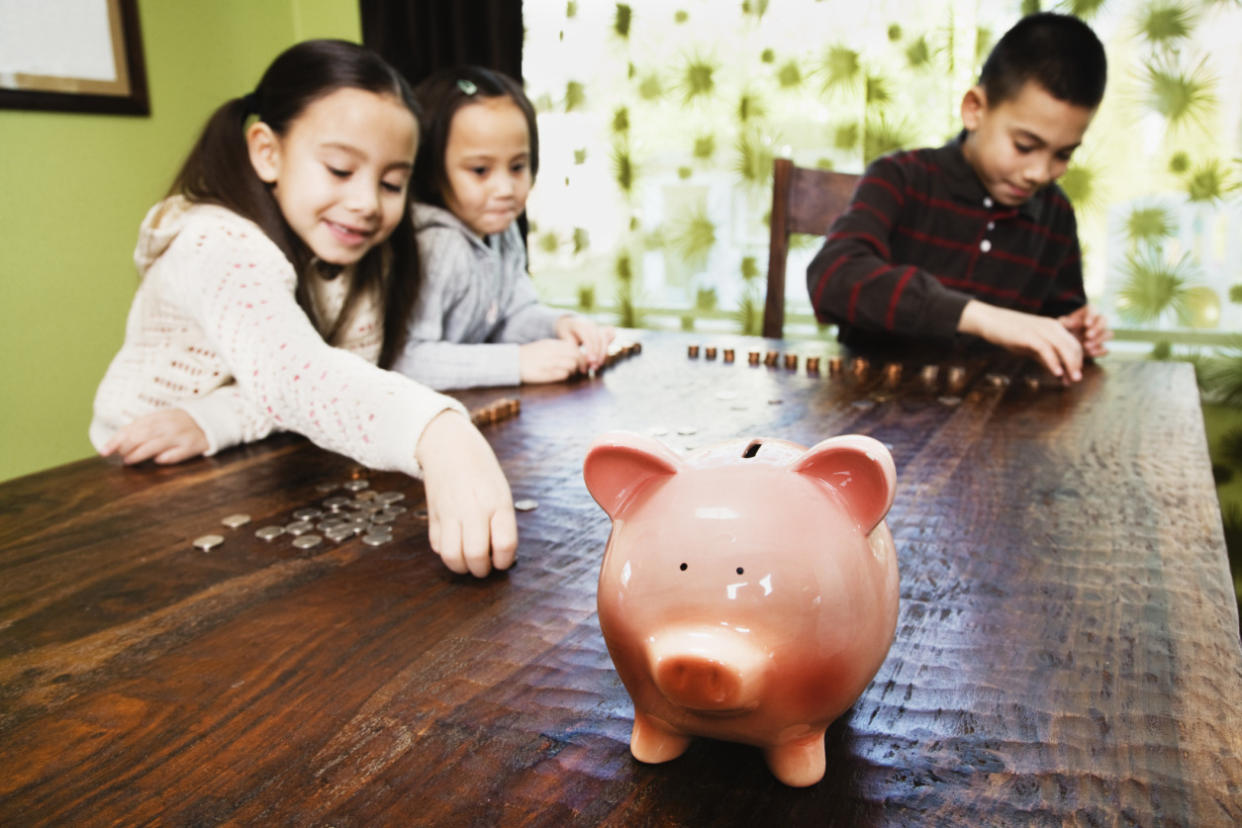How Birth Order Affects Your Bank Account

Birth-order stereotypes are getting a lot of new attention online this week thanks to a recent study looking at siblings and their attitudes toward money.
Story: What You Need to Know About Your Kids’ Birth Order
The findings, published in a 2014 article titled “Sibling Position and Risk Attitudes” in the Journal of Financial Therapy, suggest a link between someone’s birth order and how that person makes financial decisions. And while the data spawned a slew of stories in the past few days — about how first children are born savers and how being the baby of a family (sorry, Cindy Brady) may make you more likely to spend up a storm — an expert tells Yahoo Parenting that the research isn’t all it’s cracked up to be.
Story: The Youngest Is the Funniest — and More Sibling Traits, According to Science
“All birth-order research must be controlled for differences in [the number of children in a family and social class],” says Frank J. Sulloway, author of Born to Rebel: Birth Order, Family Dynamics, and Creative Lives and adjunct professor of psychology at the University of California, Berkeley. Otherwise, “one is comparing apples and oranges,” he says, noting that this study did not control for those factors. Therefore, he explains, “birth-order differences or, conversely, their apparent absence can simply be due to uncontrolled differences” in the family’s overall size or social class.
Yet birth order, like every other aspect of an individual’s personality, plays a role in how one spends and saves, starting with that first allowance. “It can definitely influence the way you handle money,” Rachel Cruze, co-author of Smart Money Smart Kids, tells Yahoo Parenting. To help parents encourage kids to make the most of their family-influenced tendencies, here’s a guide to how birth order affects one’s finances.
First-born kids can be super savers.
The best part about eldest children’s often achievement-oriented focus is that they are frequently über-organized savers, says Lynnette Khalfani-Cox, co-founder of Ask the Money Coach and author of College Secrets. “Being organized helps you in managing your finances well,” she tells Yahoo Parenting. “So that and an often financially conservative outlook as they get older helps them to live beneath their means. It’s a really good thing because those people are less prone to overspend or get into debt and create financial problems for themselves.” Cruze’s take is that the greater level of responsibility that falls to oldest children, as well as only children, translates to a responsible way of handling money: “Being more risk-averse can allow eldest children to save more money, as they’re less likely to blow their money on unnecessary purchases or take risky investments.”
Middle children may be most realistic.
The people-pleasing middle kids are “more of the social problem solvers,” says Khalfani-Cox, who has three kids herself and sees these attitudes in play every day at home. “Those attributes bode well when it comes to handling money because it makes them a bit more balanced with their finances and still good savers. They’ll think twice before spending, for example, but won’t be overly rigid about a budget.” A middle child is more likely to be smart about keeping a diversified portfolio of investments when they get older, she adds. “This isn’t the kid who’s going to grow up to throw all his money into a tech stock and bet the farm; he’ll be in diversified mutual funds. His is more of a slow-and-steady-wins-the-race financial approach.” Cruze also sees this as a plus in terms of investing. “Middle children can be a little more flexible and free-spirited,” she says. “There are many free sprits who love to have fun but also understand the importance of planning for the long-term. And this flexibility allows them to adjust to certain financial situations, like riding the waves of the market when investing.”
The littlest ones could be the biggest givers.
“In general, the last kids in the family tend to be indulged and spoiled more as parents get more permissive,” says Khalfani-Cox. “This can translate into a child being more indulgent and growing into a person who spends more.” And as the group most likely to spend freely on others, that makes them the generous set. “Since they aren’t thinking as much about the long-term, they don’t have a problem letting go of their money,” says Cruze. “This can be shown in a positive light as they’re giving.” It’s almost like spending is part of their happiness, Khalfani-Cox concludes. “By spending on others, they can enjoy the ride with the person that they’re helping.”
Top photo: Getty Images
Please follow @YahooParenting on Facebook, Twitter, Instagram, and Pinterest. Have an interesting story to share about your family? Email us at YParenting (at) Yahoo.com.

